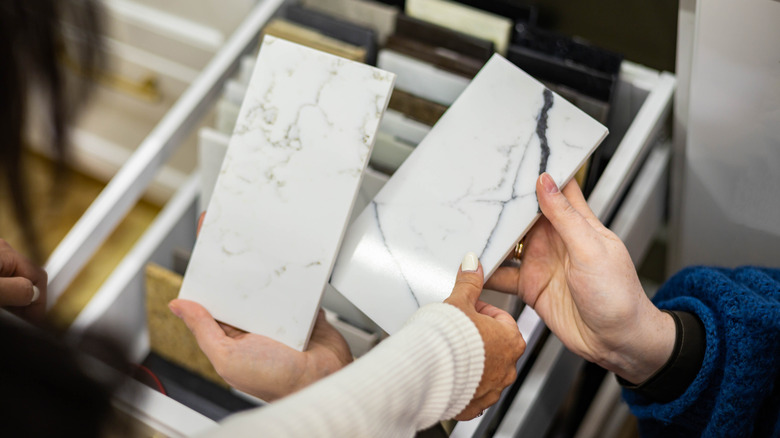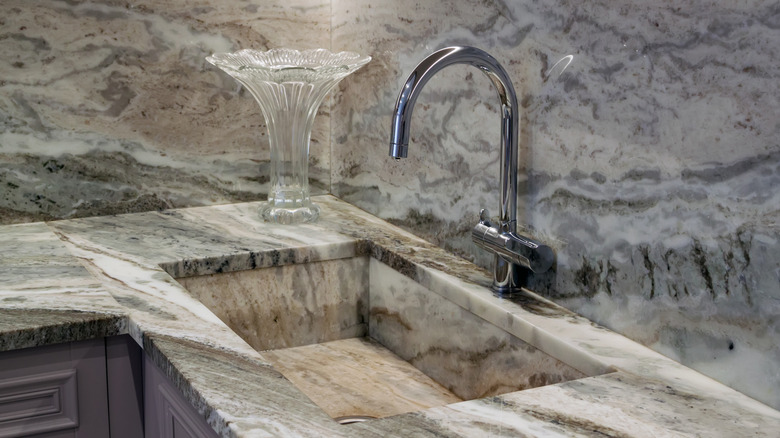Marble Is The Stone That's On Trend For 2026 - Except When It Comes To This Popular Kitchen Fixture
Marble has long been synonymous with sophistication and timelessness, making it a popular choice for kitchens with quiet luxury. Considering its ability to continuously stand the test of time, it's no wonder this natural stone has made its way into 2026 kitchen design trends as well. However, just because it's generally trendy doesn't mean marble will have the same effect everywhere in your kitchen. In fact, there's one kitchen fixture that might be better off without marble: your sink.
While their aesthetic appeal is undeniable, marble sinks are losing popularity among prospective homebuyers. The main reason for this decline is the fact that marble is easy to stain and requires a lot of maintenance, making it impractical for high-use kitchens. Of course, you can still consider a marble backsplash for your kitchen or opt for some stunning marble countertops. But when it comes to your sink material, something with a balance between looks and functionality is the better way to go.
It's time to move on from marble sinks
To avoid any downsides of using marble for your kitchen sink, the obvious solution would be to choose a different material for this kitchen area. You're going to want to choose a material that's durable, easy to care for, and works well with the other materials in your kitchen. For instance, a kitchen with marble countertops can benefit from a stainless steel sink. In addition to pairing well with marble aesthetically, stainless steel can also resist heat, stains, and corrosion. The high durability, which makes it perfect for busy kitchens, can offset the delicacy of your countertops and reduce the chances of getting them damaged.
If you already have a marble sink and replacing it isn't an option, the best you can do is to protect the marble to avoid any potential damage. Covering your sink with protective sealant will help reduce absorption, prevent staining, and keep the material in good shape. For the best results, reseal your sink every 12 to 18 months, or once every year for high-use households.

